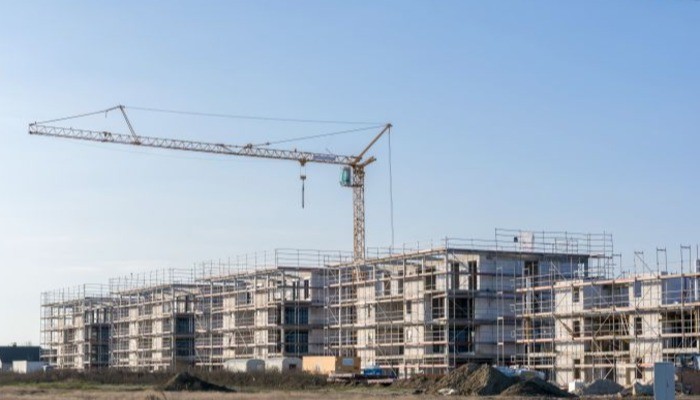Case note - Merkon Constructions Pty Ltd v Residence Co Pty Ltd
06 August 2025
Merkon Constructions Pty Ltd v Residence Co Pty Ltd [2025] VSC 151
In Merkon Constructions Pty Ltd v Residence Co Pty Ltd [2025] VSC 151 (Merkon), the Supreme Court of Victoria addressed the legal consequences of a developer and builder varying the terms of a construction contract in contravention of the terms of a side deed entered into with a third-party lender. At issue was whether the builder’s breach of the side deed rendered the purported variation of the building contract illegal and unenforceable, and whether estoppel could be used by the developer to bar the builder’s further payment claims made pursuant to the contract.
Background
The dispute arose from a large-scale residential apartment development project in Melbourne between Merkon Constructions Pty Ltd (the Builder) and Residence Company Pty Ltd (the Developer). The Developer financed the project via an agreement with Monland Pty Ltd (the Lender).
As a condition of the loan, the Developer signed a side deed with the Builder (Side Deed). Under clause 3.3(b) of the Side Deed, the Builder agreed not to take or maintain any security interest over the property, unless the Lender consented.
On 8 October 2021, after the project reached practical completion, the superintendent issued a Final Certificate. The Final Certificate contained an acknowledgment that all certified money by the superintendent had been settled as between the Builder and Developer. The Builder signed that acknowledgment.
On the same day, the Builder and the Developer entered a deed varying the terms of the construction contract (Variation Deed). The Variation Deed:
- extended the practical completion date
- increased the contract sum from $28.8 million to $37 million, and
- granted the Builder an unregistered mortgage over the property.
The Builder then issued a claim for $2,448,869 which the Developer rejected on two grounds. First, on the basis that the Variation Deed was illegal and unenforceable because it was in breach of the terms of the Side Deed, which barred the Builder from taking a security interest over the property without the Lender’s consent (which had not been obtained). Second, because the Builder having signed the acknowledgment in the Final Certificate was estopped from claiming the further payment.
Legal issues
The Court was required to determine two key issues:
- First, whether the breach of the Side Deed by the Builder rendered the Variation Deed illegal or unenforceable.
- Second, whether the Builder’s signature on the Final Certificate meant that it was estopped from claiming further payments.
The Court’s findings
Justice Osborne held that by entering into the Variation Deed the Builder breached clause 3.3(b) of the Side Deed, potentially giving the financier rights as against the Builder. However, as there was no intent to commit a legal wrong on the part of the Builder, the Variation Deed was not rendered illegal or unenforceable.
As to the estoppel argument, the Court found that the Builder was not estopped from claiming further moneys pursuant to the building contract notwithstanding that it had signed the acknowledgment in the Final Certificate. His Honour reasoned that:
- First, as a matter of construction, the signature did not mean that the Builder acknowledged that no further moneys were owing, merely that moneys certified to that date by the superintendent had been settled.
- Second, there was no evidence of the Developer suffering any detriment in reliance on the representation contained in the signed acknowledgment from the Builder.
- As a matter of construction, the signature of the Builder on the Final Certificate merely confirmed that progress payments previously certified by the superintendent had been settled as between the parties.
- The acknowledgment did not constitute a global settlement or release of any outstanding, uncertified sums.
- Both parties acknowledged by their conduct and further documentation, including entry into the Variation Deed itself, that additional payments were due.
Implications of Merkon for builders
When varying the terms of a building contract, it is important for builders to consider the impact of such variations on side deeds with financiers and other interrelated agreements with third parties.
However, the mere breach of the terms of such an agreement will not automatically render the variation illegal and unenforceable, absent a clear intention on the part of the builder to commit a legal wrong.
The case is also a cautionary tale for builders when considering the terms of any acknowledgments issued by superintendents as part of the Final Certificate. Care needs to be taken to ensure that the terms of the acknowledgments are not broad enough to preclude them from rendering further payment claims if that is the intention.
The case confirms that estoppel requires clear representation, reliance and detriment. In this case the Developer failed on every limb. There was no clear representation by the signed acknowledgment and there was no detrimental reliance.
This decision provides some reassurance to builders, that:
- payment claims will not be rendered illegal and unenforceable merely because they are issued following a contract variation that inadvertently breaches the terms of an interrelated agreement, and
- signing acknowledgements as part of the Final Certificate in relation to the settlement of prior superintendent-approved claims will not preclude builders from issuing further payment claims for uncertified work.


